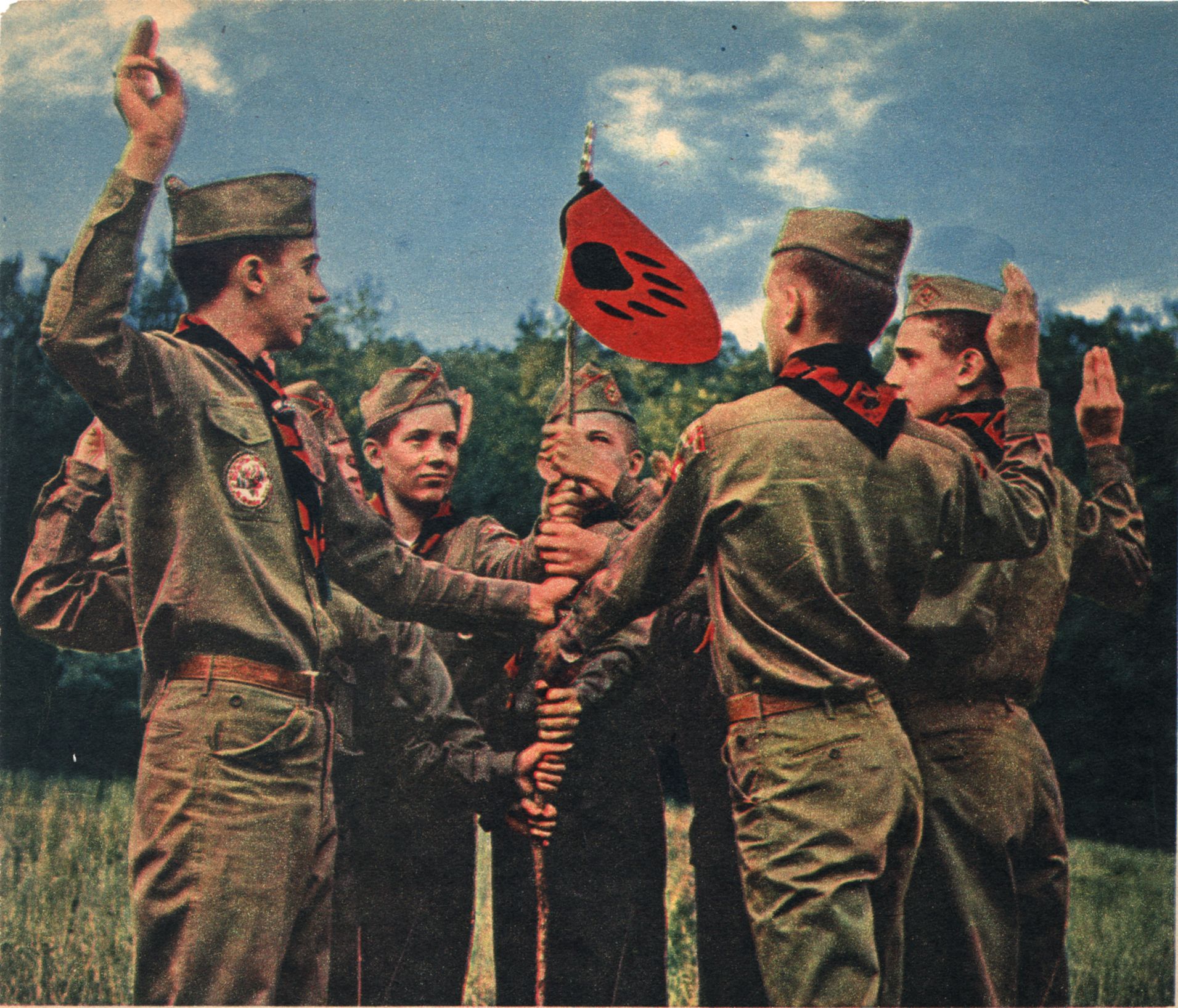Patrol Method of Leadership
"The patrol system is not one method in which Scouting can be carried on. It is the only method."
—Lord Baden-Powell, Scouting's founder
A Scout patrol is a small team of normally six to eight members where Scouts learn skills together, share responsibilities and take on leadership roles.
THE PATROL METHOD
As a member of a patrol, youth are afforded opportunities that are hard to find anywhere else. Unlike a sports team, a Scout patrol carries out a wide range of tasks that require pooling resources and working together to function successfully in all kinds of circumstances. For most young people, being in a Scout patrol will be the first time they have to rely upon themselves and other young people to follow an array of necessary steps to satisfy objectives that requires a wide range of life skills.
Like any team, a patrol will function well only as long as all the particular responsibilities pertaining to the completion of a task are carried out successfully. Because of its size, this gives every member an opportunity to participate, and this in itself results in some positive outcomes. Making a contribution to the patrol's success provides a welcome sense of belonging, of being appreciated, and a feeling of competency resulting in self esteem.
As an illustration, let's take the example of preparing a full course dinner on a campout. To accomplish this undertaking effectively, under the direction of their patrol leader, all members of the patrol get to plan the menu. One or two get to accomplish the shopping, According to their prepared duty roster, and hinging on how the food will be prepared, one or more can organize getting the water for cooking and cleaning, and prepare the fire or setup the stove(s). Others will be designated to do the actual cooking, lead the blessing, serve the food, and oversee the cleanup. Of course the whole patrol gets to eat the meal. It's a patrol enterprise, requiring cooperation, the sharing of responsibilities and leadership, working for the collective good, and putting skills into action. The patrol method models good citizenship and develops servant leadership.
WHAT B.-P. SAID
Referring to his original Brownsea Island Scouting "experiment," Baden-Powell said, "The troop was divided up into "Patrols" the senior Scout in each being patrol leader. This organization was the secret of our success. Each patrol leader was given full responsibility for the behavior of his patrol at all times, in camp and in the field. The patrol was the unit to work or play, and each patrol was camped in a separate spot. The Scouts were put "on their honor" to carry out orders. Responsibility and competitive rivalry were thus at once established, and a good standard of development was ensured throughout the troop from day to day."
In his Aids to Scoutmastership, B-P says, "The Patrol System is the one essential feature in which Scout training differs from that of all other organizations, and where the System is properly applied, it is absolutely bound to bring success. It cannot help itself! The formation of the Scouts into patrols of from six to eight and training them as separate units each under its own responsible leader is the key to a good troop. The patrol is the unit of Scouting always, whether for work or for play, for discipline or for duty. An invaluable step in character training is to put responsibility on to the individual. This is immediately gained in appointing a patrol leader to responsible command of their patrol. It is up to them to take hold of and to develop the qualities of each Scout in their patrol. It sounds a big order, but in practice it works. Then, through emulation and competition between patrols, you produce a patrol spirit which is eminently satisfactory, since it raises the tone among the Scouts and develops a higher standard of efficiency all 'round. Each member of the patrol realizes that they are in themselves a responsible unit and that the honor of their group depends in some degree on their own ability in playing the game."
"My ideal camp is where everyone is cheery and busy, where the patrols are kept intact under all circumstances, and where every patrol leader and Scout takes a genuine pride in his camp and his gadgets." — Lord Baden-Powell
Scouts BSA Patrols
Scouts BSA Patrols
Patrol Duties
The duties roster is a blueprint for shared responsibility. In preparation for the main event, during breakout group sessions, buddies are assigned to various tasks to assure their patrol's smooth running and organization for mealtimes. Everyone has a job to do. For long term camps, responsibilities can change daily after lunch cleanup. If the outing is only for a few meals, assignments are changed after each meal.
The Fire and Water Crew maintains the water supply, supplies of tinder, kindling, and fuel wood, or charcoal, protected from the weather, makes sure cooking fires and/or stoves are ready to assure the cook crew has meals prepared on time.
The Cook Crew assembles food supply, follows menus and recipes exactly, serves meals on time, puts food away, prepares cook pots to soak, and has cleanup water set on the fire or stove before serving meals.
The Cleanup Crew sets up wash and rinse water for dishwashing, cleans cooking pots and utensils, cleans up camp kitchen and dining areas, stores all group equipment, disposes of garbage and trash, and, as appropriate, puts out the cooking fire.

